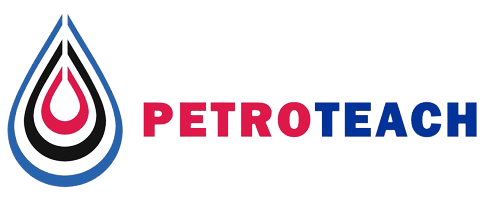DAT 606
Petroleum Data Analytics
Petroleum Data Analytics (PDA) is the application of Artificial Intelligence (AI) and Machine Learning (ML) in the oil and gas industry


Petroleum Data Analytics (PDA) is the application of Artificial Intelligence (AI) and Machine Learning (ML) in the oil and gas industry

| Code | Date | Location | price (€)* |
|---|---|---|---|
| DAT 606 | 1 - 5 Jun 2025 | Stavanger | 3990 |
* Prices are subject to VAT and local terms. Ph.D. students, groups (≥ 3 persons) and early bird registrants (8 weeks in advance) are entitled to a DISCOUNT!
Petroleum Data Analytics (PDA) is the application of Artificial Intelligence (AI) and Machine Learning (ML) in the oil and gas industry. The future of our industry will be highly influenced by PDA. Engineering-domain experts who become highly skilled AI and ML practitioners are the ones who will control the future of engineering disciplines, including petroleum engineering. Becoming an engineering-related AI and ML expert practitioner requires fundamental understanding and extensive experience using AI and ML to solve engineering-related problems.
The objective of this weeklong course is to provide the required and realistic foundations of Petroleum Data Analytics to the new generation of petroleum professionals that have recognized the potential of AI and ML in our industry. Clearly, short courses will not cover or provide all that is necessary for petroleum professionals to become true PDA experts. However, a week such as this will play a crucial role for the enthusiast of this technology in identifying the scientific realities associated with the foundation of AI and ML and its true application in PDA.
o Definitions
o Brief History
o Modeling Physics Using Artificial Intelligence
o Engineering Application of Artificial Intelligence
o Traditional Statistics versus Artificial Intelligence
o Hybrid Models
o Artificial Neural Network
o Fuzzy Set Theory
o Evolutionary Computing
o Explainable Artificial Intelligence (XAI)
o Ethics of Artificial Intelligence (AI-Ethics)
o Top-Down Modeling
o AI-based Modeling using Space and Time Field Measurements
o Spatio-Temporal Database Generation
o Automated, Full Field History Matching
o Blind Validation of History Match in Space and Time
o Production Forecasting
o Sensitivity Analysis
o Production Optimization
o Injection Optimization
o Infill Location Optimization
o Geo-Analytics: AI-base Geological Modeling
o Dynamic Production Allocation
o Actual Case Studies
o Matura Field Production Optimization in the Middle East
o Matura Field Production Optimization in the Southeast Asia
o Traditional Proxy Modeling
o Reduced Order Modeling (ROM)
o Response Surface Modeling (RSM)
o Smart Proxy Modeling
o Expertise in Numerical Reservoir Simulation
o Spatio-Temporal Database Generation
o Accuracy of Smart Proxy Model in Space and Time
o Blind Validation of Numerical Reservoir Simulation Runs
o CCS-Analytics (AI-based Carbon Capture and Storage)
o Geological Realizations
o Reservoir Pressure Distribution in Space and Time
o CO2 Saturation Distribution in Space and Time
o Case Studies
o Smart Proxy Model of Mature Field in Middle East
o Smart Proxy Model of CO2 Injection in Saline Aquifer
o Shale Analytics
o Modeling Production from Shale using Conventional Techniques
o Decline Curve Analysis
o Rate Transient Analysis
o Numerical Reservoir Simulation
o Shale Descriptive Analytics
o Shale Predictive Analytics
o Shale Prescriptive Analytics
o Case Studies
o Gas Production from Marcellus Shale
o Oil Production from Permian Basin
o AI-based Modeling of Frac-Hit
o AI-based Production Allocation of Stages/Cluster via Fiber Optics

Professor Shahab D. Mohaghegh, a pioneer in the application of Artificial Intelligence, Machine Learning and Data Mining in the Exploration and Production industry, is Professor of Petroleum and Natural Gas Engineering at West Virginia University and the president and CEO of Intelligent Solutions, Inc. (ISI). He holds B.S., M.S., and Ph.D. degrees in petroleum and natural gas engineering. He has authored three books (Shale Analytics– Data Driven Reservoir Modeling– Application of Data- Driven Analytics for the Geological Storage of CO2), more than 170 technical papers and carried out more than 60 projects for independents, NOCs and IOCs. He is a SPE Distinguished Lecturer and has been featured four times as the Distinguished Author in SPE’s Journal of Petroleum Technology (JPT). He is the founder of Petroleum Data-Driven Analytics, SPE’s Technical Section dedicated to AI, machine learning and data mining. He has been honored by the U.S. Secretary of Energy for his technical contribution in the aftermath of the Deepwater Horizon (Macondo) incident in the Gulf of Mexico and was a member of U.S. Secretary of Energy’s Technical Advisory Committee on Unconventional Resources in two administrations (2008-2014). He represented the United States in the International Standard Organization (ISO) on Carbon Capture and Storage (2014-2016).
This course is designed for Petroleum engineers and geoscientists as well as managers and decision makers in NOCs, IOCs, Independents, and Service Providers. In general, those involved in planning, and decision making of hydrocarbon assets are the main target audience.
o Intermediate to Advanced
The objective of this weeklong course is to provide the required and realistic foundations of Petroleum Data Analytics to the new generation of petroleum professionals that have recognized the potential of AI and ML in our industry.
Registration is now OPEN!
* Prices are subject to VAT and local terms. Ph.D. students, groups (≥ 3 persons) and early bird registrants (8 weeks in advance) are entitled to a DISCOUNT!
For more details and registration please send email to: register@petro-teach.com
Would you like a PetroTeach training course delivered at a time or location to suit you?
click for request in house